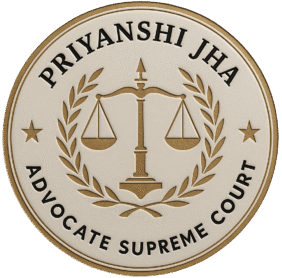In India, filing a First Information Report (FIR) is the first official step in initiating a criminal investigation. But what happens after that? Many people fear the process simply because they don’t understand what follows. Whether you’re a complainant or someone named in an FIR, knowing the steps that come after can bring clarity—and protection.
🔍 What is an FIR?
An FIR is a written document prepared by the police when they receive information about the commission of a cognizable offence. These include serious crimes like theft, assault, murder, or dowry harassment—where the police have the authority to register a case and begin investigation without prior approval from a magistrate.
🧭 What Happens After an FIR is Registered?
Here’s a simplified step-by-step overview of what typically unfolds after an FIR is lodged:
1. FIR Registration Number is Issued
Once accepted, the police register the complaint and assign it an FIR number. A copy must be provided to the complainant free of cost.
2. Investigation Begins
The police begin investigating the facts. This includes:
- Visiting the scene of the crime
- Collecting evidence
- Recording statements from witnesses
- Seizing any relevant material
- Getting a medical examination done (if required)
The accused may be summoned for questioning during this stage.
3. Arrest of the Accused (If Applicable)
If the police find prima facie evidence and deem it necessary for custodial interrogation or to prevent escape, an arrest may be made. In non-bailable cases, the accused should consider applying for anticipatory bail proactively.
4. Filing of the Charge Sheet
Once the investigation is complete, the police prepare a charge sheet under Section 173 of the CrPC. This is a formal list of charges and evidence submitted to the Magistrate.
- If there is insufficient evidence, the case may be closed with a final report (often called a “closure report”).
- If charges are substantiated, the case proceeds to trial.
5. Court Proceedings Begin
Upon receiving the charge sheet, the court may:
- Summon the accused
- Frame charges
- Begin the trial process including witness testimonies, cross-examinations, and final arguments
📌 Important Rights You Should Know
- Right to a copy of the FIR: You’re entitled to receive a free copy of your FIR.
- Right to bail: In bailable offences, the accused can get bail as a matter of right.
- Right to legal representation: Whether complainant or accused, always consult an experienced lawyer.
- Right against self-incrimination: You are not obliged to answer questions that may incriminate you.
⚖️ Advocate’s Perspective
“Many people panic the moment an FIR is filed—either against them or someone they know. But panic is unnecessary. The key is to respond with clarity, not fear. Understand the process, seek legal counsel, and act within your rights.”
— Advocate Priyanshi Jha
📞 Need Legal Support?
If you’ve filed an FIR or been named in one, timely legal advice can make a crucial difference. Reach out for a confidential consultation and take control of your legal situation today.

